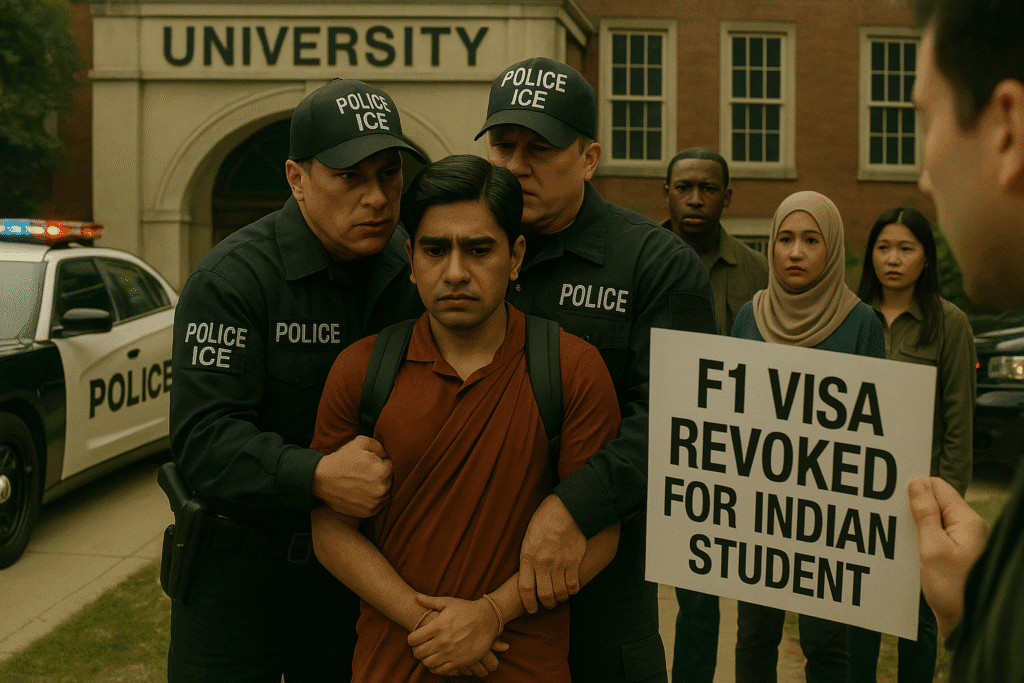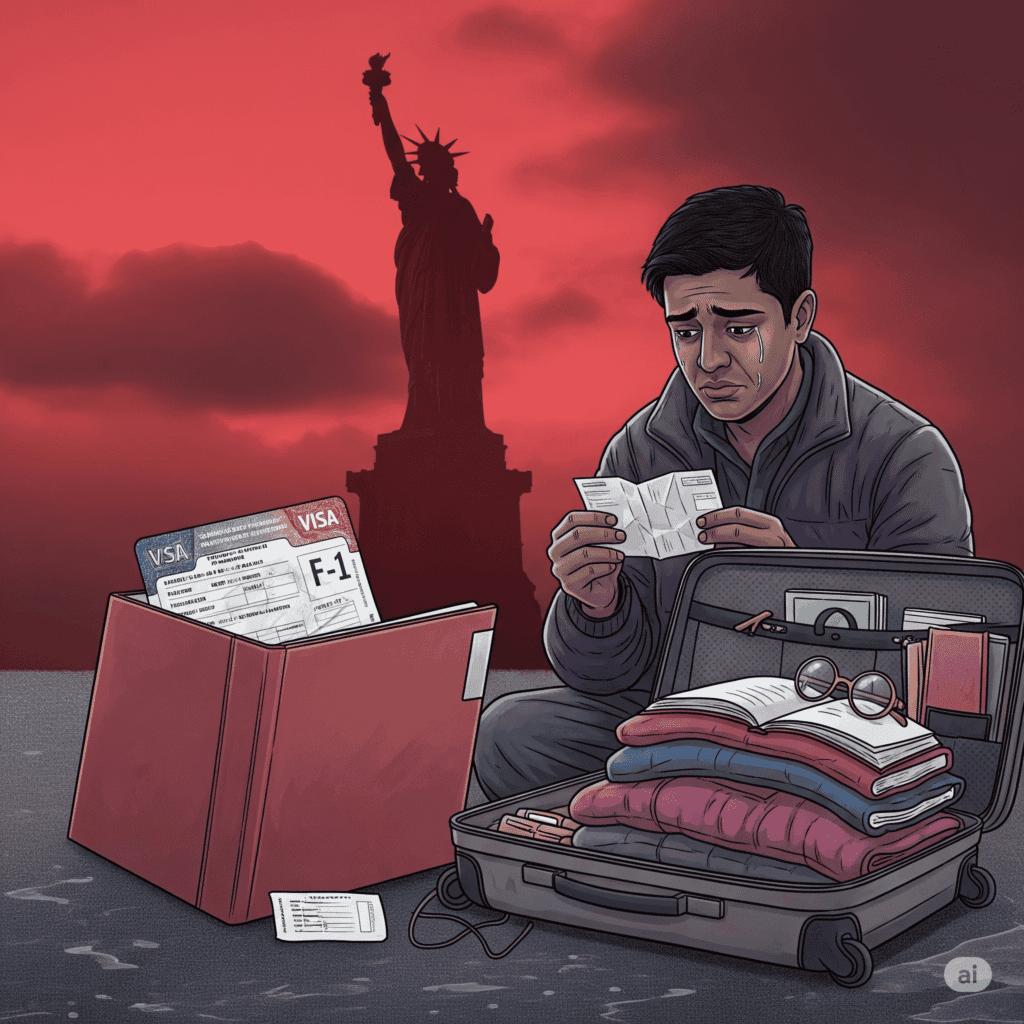In early 2025, Indian students faced a shocking surge in F-1 visa revocations, accounting for more than 50% of all student visa cancellations in the United States. Over 1,800 international students from 280+ institutions had their immigration status revoked within weeks; many without proper notice. f-1 visa revocations Indian students is very concerning, isn’t it?
This crackdown has raised major concerns, especially among Indian students on F-1 or J-1 visas, leaving thousands in legal limbo. What triggered this wave of revocations? And how can students safeguard their immigration rights?

Why Are F-1 Student Visas Being Revoked in 2025?
U.S. Immigration and Customs Enforcement (ICE) and the Department of State have adopted stricter enforcement policies around the Student and Exchange Visitor Information System (SEVIS).
Key Policy Changes:
- Lowered standards of evidence: SEVIS terminations now require only “evidence” of noncompliance, not “clear and convincing” proof.
- Automatic SEVIS termination: Anytime a visa is revoked, ICE automatically cancels the student’s SEVIS record.
Retroactive revocations: Thousands of SEVIS records were deleted without prior notice.
Common Justifications for Visa Cancellation:
- Minor traffic violations or DUI charges
- Involvement in peaceful campus protests (especially pro-Palestinian activism)
- Social media content deemed “problematic”
- Vague claims of “adverse foreign policy consequences”
In April 2025 alone, 1,600 student visas were canceled, and over 4,700 SEVIS records deleted.
🇮🇳 How Are Indian Students Being Targeted?
According to recent data:
- 50% of all F-1 visa revocations involved Indian students
- 65% of affected Indian students were on Optional Practical Training (OPT)
- Many revocations were for minor infractions:
- Speeding (e.g., 70 mph in a 65-mph zone)
- Expired license plates
- Underage drinking at college parties
- Red light violations or failure to wear seat belts
- Speeding (e.g., 70 mph in a 65-mph zone)
Affected students came from top universities like:
- UCLA
- UC Berkeley
- Stanford
- UC San Diego
- UC Davis
- UC Santa Cruz
Students often received abrupt emails from Designated School Officials (DSOs) informing them their SEVIS records were terminated—invalidating their I-20 forms, EADs, and legal stay.

What Can Students & Immigration Lawyers Do?
If your F-1 visa has been revoked, immediate action is crucial.
Step-by-Step Legal Response:
- Gather Evidence:
- SEVIS termination emails
- Conversations with DSOs
- I-94 travel records, academic transcripts, immigration paperwork
- SEVIS termination emails
- Consult an Immigration Lawyer:
- Do not contact school officials directly before legal consultation.
- Do not contact school officials directly before legal consultation.
- Legal Options Available:
- Request SEVIS correction via your DSO
- Apply for reinstatement with Form I-539
- Challenge revocation through federal court
- Request SEVIS correction via your DSO
Judges have already granted temporary restraining orders in 35+ cases, offering relief to affected students.
The sudden surge in F-1 visa revocations—especially targeting Indian and STEM students—signals a concerning shift in U.S. immigration enforcement. Many are now forced to leave the country despite years of valid status and academic contributions.
The increased surveillance and disproportionately harsh penalties reflect deeper geopolitical and economic undercurrents. As the situation evolves, legal preparedness and awareness of student rights have never been more important.
Featured Snippet:
In 2025, over 50% of all F-1 visa revocations in the U.S. affected Indian students. Policy shifts lowered the standard of evidence for SEVIS termination, triggering mass visa cancellations—often for minor infractions. Legal support and immediate action are crucial to protect immigration status.
Other Resources:
Disclaimer: This post is only written for informational purpose. So cross verify all the information by your one.
1 thought on “F-1 Visa Revocations Targeting Indian Students in 2025: What’s Really Happening?”